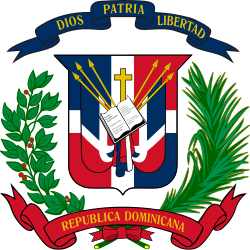You can help expand this article with text translated from the corresponding article in Spanish. (September 2015)Click [show] for important translation instructions.
|
This article needs to be updated.(February 2016) |
Broad Front Frente Amplio | |
|---|---|
 | |
| President | Maria Teresa Cabral |
| Secretary-General | Orlando Gonzalez |
| Founded | June 14, 1992 |
| Ideology | Progressivism |
| Political position | Left-wing |
| Chamber of Deputies | 0 / 190 |
| Senate | 0 / 32 |
| Website | |
| soyfrenteamplio | |
 |
|---|
The Broad Front (Spanish : Frente Amplio), previously named the Movement for Independence, Unity and Change (Spanish: Movimiento Independencia, Unidad y Cambio), is a political formation in the Dominican Republic with a leftist-progressive platform. On the May 16th, 2006 parliamentary election it got 9,735 votes (0.32%), but no seats. [1] In the municipal elections held simultaneously, the group had its best performance in Peralvillo (1,271 votes, 16.36%) and Bayaguana (1,274 votes, 10.27%). Virtudes Álvarez has been its leader for some time.